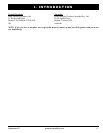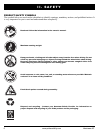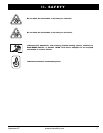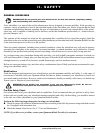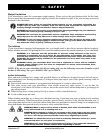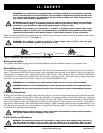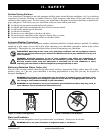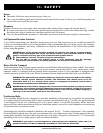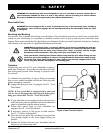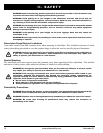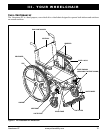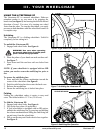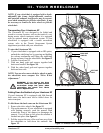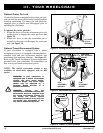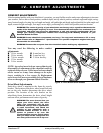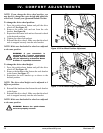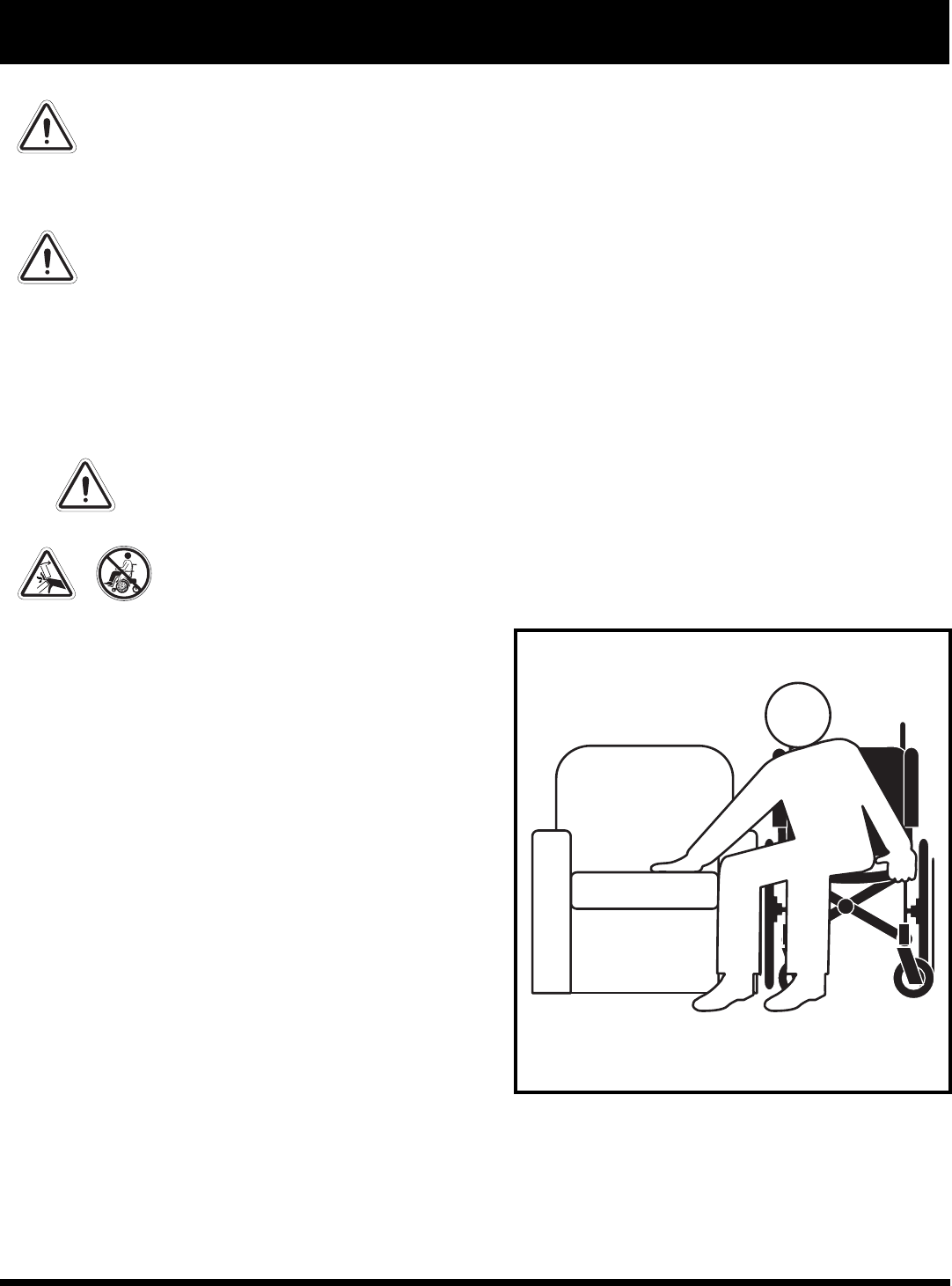
Litestream XF www.pridemobility.com 13
WARNING! The positioning belt is not designed for use as a seat belt in a motor vehicle. Nor is
your wheelchair suitable for use as a seat in any vehicle. Anyone traveling in a vehicle should
be properly belted into seats approved by the vehicle manufacturer.
Removable Parts
WARNING! Do not attempt to lift or move a wheelchair by any of its removable parts, including
the armrests, seat, and front riggings. Do not attempt to pick up the wheelchair while the seat
is occupied.
Reaching and Bending
Never reach, lean, or bend while driving your wheelchair. If it is absolutely necessary to reach, lean, or bend while
seated on your wheelchair, it is important to maintain a stable center of gravity and keep the wheelchair from
tipping. Pride recommends that the wheelchair user determine his/her personal limitations and practice bending
and reaching in the presence of a qualified healthcare professional.
WARNING! Do not bend, lean, or reach for objects if you have to pick them up from the
floor by reaching down between your knees or if you have to reach over the back of the
seat. Movements such as these may change your center of gravity and the weight
distribution of the wheelchair. This may cause your wheelchair to tip.
Keep your hands, clothing and all other object away from the tires when driving. Do not
allow any personal belongings or objects to drag behind the wheelchair when driving.
Be aware that loose fitting clothing or other objects can become caught in drive tires
and/or they may become entangled in the running gear.
II. SAFETY
Figure 4. Ideal Transfer Position
Transfers
Transferring onto and off of your wheelchair requires a
good sense of balance. Always have an attendant or health-
care professional present while learning to properly trans-
fer yourself.
To eliminate the possibility of injury, Pride recommends
that you or a trained attendant perform the following tasks
before attempting a transfer:
Engage the caster pin lock, if equipped. See III. “Your
Wheelchair.”
NOTE: If your wheelchair is equipped with a caster pin
lock, be sure to disengage the caster pin lock before oper-
ating your wheelchair. See III. “Your Wheelchair.”
If your wheelchair is not equipped with a caster pin lock,
turn both caster wheels toward the transfer destination to
improve wheelchair stability during transfer.
Ensure both wheel locks on your wheelchair are
engaged. See III. “Your Wheelchair.”
If necessary, remove or flip up one or both armrests.
See IV. “Comfort Adjustments.”
Move the leg rests aside; this will help to keep your feet
from getting caught on the front rigging during the
transfer.
Reduce the distance between your wheelchair and the
object you are transferring onto.



